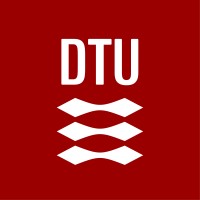Professor in Geo-Energy Engineering/Applied Geosciences - DTU Offshore
DTU - Technical University of Denmark.com
Office
Kgs. Lyngby, Denmark
Full Time
You will focus on researching coupled multiphysics processes essential for sustainable energy production and responsible subsurface interventions, primarily related to offshore operations. The goal is to understand the subsurface as a multifunctional resource and integral part of our ecosystem. This research will include subsurface CO2 storage, and sustainable energy storage and production (e.g., hydrogen storage, geothermal energy).
In recent years, the DTU Offshore led program on CO2 storage has become a key player in addressing environmental concerns, offering solutions through enhanced insights and new technologies. The aim is to advance the industry towards more responsible subsurface operations, requiring expertise in coupled multiphysics engineering and a deep understanding of the subsurface-related industry. Additionally, the role involves enabling better decision-making regarding government regulations on subsurface use. While DTU Offshore focus has been mainly national, future developments are expected to attract international stakeholders.
Responsibilities and qualifications
The coupled multiphysics processes involved in new energy solutions (geothermal energy, hydrogen storage, offshore energy islands, CCS, etc.) need more attention, especially as the energy industry expands offshore. For CO2 storage, the integrity of the wellbore cement and caprock plays a major role as a potential leakage of the subsurface fluids can contaminate sediments, impacting marine life or onshore freshwater resources. Geothermal energy production may trigger earthquakes due to cold fluid injection, and hydrogen storage could be affected by microorganisms consuming the stored hydrogen. The goal is to collaborate with industry and authorities to optimize subsurface use while minimizing environmental impact and gaining necessary societal licenses. You are expected to actively develop this area through fundraising and project development.
Collaboration across universities and departments is a core part of the DTU Offshore model for achieving goals and viable solutions, which has driven the rapid development of geo-energy production engineering. This collaborative approach will continue.
Teaching responsibilities may include participating in cross-disciplinary courses, such as those on geothermal energy and subsurface storage, or developing new courses addressing multiphysics processes relevant to green transition technologies.
As a successful candidate for the professorship, you must have:
- Relevant strong contributions to the areas described above.
- Strong leadership and management skills of large and complex projects
- Significant proven track record on fundraising
- Strong publications within the subjects described above.
- Strong collaboration skills
You are expected to take a lead role in teaching at the BEng, BSc, MSc and PhD levels.
DTU employs two working languages: Danish and English. You are expected to be fluent in at least one of these languages, and in time are expected to master both.
You will be assessed against the responsibilities and qualifications stated above and the following general criteria:
- Documented experience and quality of teaching and curriculum development
- Research impact and experience, funding track record and research vision
- International impact and experience
- Societal impact
- Innovativeness, including commercialization and collaboration with industry
- Leadership, collaboration, and interdisciplinary skills
- Communication skills
- Salary and terms of employment
- The appointment will be based on the collective agreement with the Danish Confederation of Professional Associations. The allowance will be agreed upon with the relevant union.
- Further information
- Further information may be obtained from Elena Pachkova, Centre Director, tel.: +45 93511464.
You can read more about DTU Offshore at www.offshore.dtu.dk
If you are applying from abroad, you may find useful information on working in Denmark and at DTU at DTU – Moving to Denmark.
- Application procedure
- Your complete online application must be submitted no later than 17 November 2025 (23:59 Danish time).
Applications must be submitted as one PDF file containing all materials to be given consideration. To apply, please open the link "Apply now", fill out the online application form, and attach all your materials in English in one PDF file. The file must include:
- Application (cover letter) addressed to the President
- Vision for teaching and research
- CV including employment history, list of publications indicating scientific highlights, H-index and ORCID (see http://orcid.org/)
- Teaching portfolio including documentation of teaching experience
- Academic Diplomas (MSc/PhD)
You can learn more about the recruitment process here.
Applications received after the deadline will not be considered.
All interested candidates irrespective of age, gender, disability, race, religion or ethnic background are encouraged to apply. As DTU works with research in critical technology, which is subject to special rules for security and export control, open-source background checks may be conducted on qualified candidates for the position.
DTU Offshore
Danish Offshore Technology Centre is a research centre with a central position in the energy transition. We develop research-based technology solutions for the offshore industry in the Danish North Sea. The center has a strong collaboration with industry and has strong focus on delivering applicable research-based solutions. DTU Offshore has a long history of cross-disciplinary collaboration with other universities and research institutions.
Technology for people
DTU develops technology for people. With our international elite research and study programmes, we are helping to create a better world and to solve the global challenges formulated in the UN’s 17 Sustainable Development Goals. Hans Christian Ørsted founded DTU in 1829 with a clear mission to develop and create value using science and engineering to benefit society. That mission lives on today. DTU has 13,500 students and 6,000 employees. We work in an international atmosphere and have an inclusive, evolving, and informal working environment. DTU has campuses in all parts of Denmark and in Greenland, and we collaborate with the best universities around the world.
